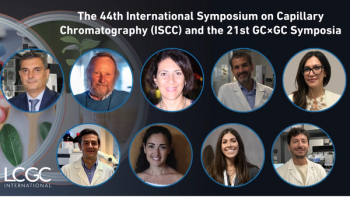
- LCGC Europe-07-01-2018
- Volume 31
- Issue 7
Separation Science: Driving Pharmaceutical Development and Manufacture
The Chromatographic Society and the Royal Society of Chemistry Analytical Division North East Region has organized a meeting to be held on 22 November 2018 in the Stadium of Light, Sunderland, UK.
The Chromatographic Society and the Royal Society of Chemistry Analytical Division North East Region has organized a meeting to be held on 22 November 2018 in the Stadium of Light, Sunderland, UK.
The organizers are planning to make the conference a little different than usual. The meeting will not be introducing new chromatographic innovations to pharmaceutical researchers. Instead, the conference will reflect on the enduring strength of pharmaceutical development and manufacture in the UK. The unmet analytical challenges facing these areas of the industry will be explored and emerging technologies reviewed to assess those that potentially offer the best solutions for the immediate future. Ahead of the meeting analytical scientists supporting pharmaceutical development and manufacture will be invited to comment on the most important unmet analytical needs they are facing, with a view to speakers and vendors responding at the meeting. For more information, please visit: http://chromsoc.com/event/seperation-science-driving-pharmaceutical-development-and-manufacture
For initial enquiries please contact:
Scientific programme:
Exhibition opportunities:
Local arrangements:
Articles in this issue
over 7 years ago
Vol 31 No 7 LCGC Europe July 2018 Regular Issue PDFover 7 years ago
Split, Splitless, and Beyond—Getting the Most From Your Inletover 7 years ago
The 32nd International Symposium on Chromatography (ISC 2018)over 7 years ago
Data Integrity and USP : Part 1 Specifications and SuppliersNewsletter
Join the global community of analytical scientists who trust LCGC for insights on the latest techniques, trends, and expert solutions in chromatography.




